Hearing loss can be a scary part of getting older. It can also happen abruptly, due to physical or auditory trauma.
But many websites offer a free online hearing test that can help you measure and identify possible hearing loss.
We tried out some of the best options so that we could recommend the best free online hearing test for you.
Popular Online Hearing Test:
- MDHearingAid Hearing Test—Best Free Online Hearing Test
- Eargo Hearing Test—Best For Speech Communication
- Miracle-Ear Hearing Test—Most Practical Test
- ReSound Hearing Test—Best For Severe Hearing Loss
- Phonak Hearing Test—Best Professional Review Of Results
- Widex Hearing Test—Best Helpful Resources
Best Online Hearing Test
#1. MDHearingAid Online Test—Best Free Online Hearing Test
Pros
- Thorough, test a wide range of frequencies
- Very accurate
- Detailed, graphical results
- Manufactures their own hearing aid devices
Cons
- Requires e-mail registration
- Takes longer than other, more rapid hearing test
MDHearingAid is a convenient, well-trusted website for an online hearing test. Their free online hearing test was designed by ENT professionals, audiologists, and sound engineers for maximum accuracy.
The entire free online hearing test takes about eight minutes, and most users find it simple and understanding. After they test your hearing, results are given graphically, which is very helpful for comparison to other tests and detailed analysis of potential hearing loss.
MDHearingAid manufactures all of their hearing aids, which are FDA-approved. Because they actually make the hearing aids based on the deficiencies found from their own free online hearing test, they have the best chances of correcting the hearing loss or tinnitus.
Their new and improved VOLT+ hearing aids are rechargeable and water-resistant. This hearing aid device has dual, multi-directional smart microphones that augment only the sound that you want to hear. Check out our MDHearingAid Review here.
#2. Eargo Online Hearing Test—Best For Speech Communication
Pros
- Infographic test results
- Focuses on human speech frequencies
- Tone test is only 2 minutes
- Customizable for different hearing environments
Cons
- Requires full questionnaire
- Requires full customer registration information
Eargo has a great free online hearing test. The Eargo hearing test is designed for customers with demands on their time and a need to improve daily verbal communication.
They will test your hearing in a quick, simple 2-minute test, Eargo analyzes your capability to pick up normal speech tones and ranges of frequency.
After providing your full address and phone number, Eargo will send you results. They will also recommend hearing aids from their own manufacturing line.
#3. Miracle-Ear Online Hearing Test – Most Practical Test
Pros
- Uses everyday, real world scenarios to test hearing
- Results in five minutes
- Test results can be sent to audiologists for professional appointments
Cons
- Most services require in-person visits to their physical medical clinics
Miracle Ear has hearing clinics all over the world, in countries on every continent except Antarctica. To attract patients who need a hearing evaluation, their website has a free online hearing test.
Before visiting one of their medical clinics, customers can take a convenient and quick free online hearing test. Miracle Ear’s hearing test uses practical listening scenarios to evaluate the patient’s hearing capabilities. Use headphones for the most accurate results.
If Miracle Ear fits you with one of their hearing aid devices after they test your hearing, you will have the added security of a three year warranty and lifetime service support for your hearing aids from the company.
#4. ReSound Online Hearing Test—Best For Severe Hearing Loss
Pros
- Good at diagnosing severe and profound hearing loss
- Can diagnose tinnitus
- Website contains extensive hearing loss articles and medical information
- Fast results
Cons
- Test results are not very thorough
ReSound is another website with a free online hearing test. The ReSound hearing test stands out from the others by measuring your capability to distinguish useful sound such as dialogue from background noise.
They can test your hearing in three minutes, but if you are using headphones, you can take the test for each ear individually.
The test is straightforward, but the results are equally basic. ReSound states that their free online hearing test is not an adequate alternative to visiting an audiologist. They recommend using headphones for the best results.
However, the ReSound website is packed with resources and further research to help patients learn about tinnitus, hearing loss and hearing aids. This is valuable for anyone investigating causes and solutions to gradual or traumatic hearing loss.
#5. Phonak Online Hearing Test—Best Professional Review Of Results
Pros
- Fast results
- Testing includes tone awareness and self-diagnosis
- Results are reviewed by audiology professionals
Cons
- Results are not as informative as other online test
Phonak has a free online hearing test that is similar to the others in this article. However, Phonak’s free online hearing test also asks specific self-diagnostic questions so that the patient can help identify particular hearing difficulties like tinnitus.
Phonak can test your hearing, and they recommend using headphones. They stress that their test is not meant as a replacement for a full audiologist’s exam. They have a hearing care professional available for referrals and advice regarding hearing aids.
#6. Widex Online Hearing Test—Best Helpful Resources
Pros
- Good online resources for hearing loss research
- Fast results (Five minutes)
- Personal questionnaire and tone detection tests
Cons
- Results e-mailed after registration
Widex has a lot of information about their free online hearing test. Like ReSound, has a website full of ebooks and articles to help explain hearing loss, and how they can test your hearing.
Their online hearing test is quick and simple, and administered in two parts. The first part is to complete a personal questionnaire form to discover your specific hearing loss concerns. The second part includes background noise and tonal distinctions, similar to another hearing test.
Results are e-mailed after a licensed hearing care professional has a chance to review and analyze them, and offer professional recommendations for hearing aids.
Are Online Hearing Tests Accurate?
The accuracy of online hearing tests depends on several factors. It’s impossible to guarantee that the results of a hearing test will be completely accurate for all customers.
The most important factor for ensuring that your online hearing test is accurate is to take the test in a quiet volume environment. If you are taking a hearing test amidst noisy children, a busy workplace, or even a relatively noiseless cafe, you will find that the background noise can lower your scores.
Additionally, the quality of your computer’s speakers or your headphones or headset can affect the accuracy of your online hearing test. You’ll need good background noise cancelling ear-buds with a wide range of frequencies for the best results.
How Can I Check My Hearing At Home?
Just about every online hearing test is very user-friendly and self-explanatory. In general, after visiting one of these websites, you must register with an e-mail address so that the website can follow up with you after delivering your results.
Most of the tests involve listening for a faint tone at various frequencies and volumes, and clicking a button when you hear that tone. If you fail to click the button, or click it after a noticeable delay, this indicates that you may have hearing loss at those registers.
Some of the online hearing test websites have more creative and more practical applications. Some might test your ability to distinguish words in conversation. Other online hearing test applications might test your capability to filter usable sounds from background noise.
Finally, many of these tests will also ask you to complete a personal questionnaire form. These questions will determine which types of hearing loss you might be experiencing, based upon your present hearing difficulties. This is necessary before recommending hearing aids.
Tips for Taking an Ear Test Online
Being in a quiet environment will make a huge difference if you want accurate results from an online hearing test. Of course, many of us can’t entirely mute our lives—children, coworkers, or other background noise always has a habit of interrupting us.
Fortunately, most of these online hearing test evaluations can be finished in five minutes or less, so hopefully you can find those five minutes of silence.
While these tests can be taken through your computer’s speakers, you will get better results if you are using a high-quality, noise-cancelling headset or headphones. Earbuds can also block background noise fairly well, ensuring that you get the clearest tones and the best chances of identifying which frequencies you can, or cannot adequately hear.
Additionally, using stereo headphones will allow the online hearing test to evaluate your hearing in each ear individually. Your computer’s speakers can only evaluate your composite hearing loss.
If you suspect that you are experiencing lopsided hearing loss, more severe in one ear than the other, then it is important to use stereo headphones and take an online hearing test that can test your ears separately.
How Do I Know If I Have Hearing Loss?
The Centers for Disease Control (CDC) has conveniently listed ten possible common indications of hearing loss:
- Chronic ringing in your ears can indicate tinnitus or hearing loss
- Speech sounds muffled during conversation
- If you frequently turn up the volume while watching TV or listen to music
- You might have difficulty hearing alarms, telephone notifications, or other high-pitched sounds at any volume
- Difficulty following conversation in noisy environments
- Difficulty following conversation over the phone without increasing the volume
- If you frequently ask other people to repeat themselves
- If you frequently ask others to speak more loudly or clearly
- Difficulty distinguishing certain consonant sounds (such as ‘S’ vs. ‘F’)
- If your ears are overly sensitive when you hear certain sounds or noises or frequencies
Taking a Hearing Test Online: FAQ
How Can I Test My Hearing Ability Without an Online Hearing Test?
The Mayo Clinic recommends five common alternative methods to test your hearing:
- Audiometer tests are the standard hearing tests conducted by audiologists at hearing clinics. By listening to faint audio tones at various frequencies, the hearing care professional can determine your hearing ability.
- A tuning fork can be used to determine if you have hearing loss at certain frequencies. Tuning forks are small, two-pronged metal devices that produce sounds in a certain range when struck against hard objects.
- Various mobile apps are now available that can help you detect hearing loss. Check your mobile app store for options for your phone or tablet.
- General screening tests, such as whisper tests, can help you diagnose hearing loss. Your doctor might ask you to cover one ear and indicate when you can hear him whispering in your ears at low volumes.
- Your doctor can perform a physical examination of your ears to find inflammation or obstruction in your ear canal that might be causing hearing difficulties. A physical exam can also identify certain injuries to your hearing organs.
How Do I Know if My Hearing is Bad?
The ten common indicators listed above are very good if you suspect your hearing is bad, or worsening. In general, if you are having trouble following conversations in any circumstances, this might be a good time to try a hearing test or visit a medical clinic for hearing aids.
If you can’t hear alarms or phone notifications, this is also a good indicator. Some hearing loss does not significantly impact your ability to lead a fulfilling life, but your inability to hear alarms or conversations might lower your ability to function. Hearing aids can often help in these situations.
What Does a Hearing Test Show?
The most popular type of hearing test is called an audiogram. This hearing test shows your sensitivity to sounds across the full range of normal human hearing frequencies. It can also determine whether you need hearing aids.
You may be having difficulty hearing certain frequencies, or you might just be unable to hear those frequencies at low volumes. A hearing test will measure both sound qualities and your ability to hear both.
How Do I Read My Hearing Test Results?
An audiogram chart might look difficult, but understanding your hearing test results isn’t necessarily difficult.
An audiogram is presented as a graph. The vertical range shows volume levels, with the loudest volume at the bottom and the quietest volume at the top. This is to show that your ability to hear quiet sounds is more beneficial, and you might have hearing loss if you can only hear the quietest sounds at the bottom.
The vertical range is also divided into different categories based on the severity of your hearing loss. If your line drops into the lowest part of the chart, this indicates profound hearing loss.
The horizontal axis shows the frequency range. Hearing loss often occurs at higher registers. It is possible that you can still hear lower frequencies clearly, but have hearing loss at higher frequencies (this might include conversation and alarm sounds).
If your ears were tested separately, the audiogram will show two different clearly marked lines that show your hearing ability in each ear. You might need different hearing aids in each ear.
Do I Need Hearing Aids?
This is a question best answered by a trained audiologist, based upon your personal hearing requirements and capabilities. Hearing aids can usually give you better hearing.
If your online hearing test shows that you have profound hearing loss in any frequency range, or severe hearing loss in more than one range, you should probably consider the better hearing you can get with hearing aids.
Of course, you should measure these results against your lifestyle and your personal needs for hearing aids. A professional doctor or audiologist professional can give you specific advice after understanding your lifestyle questionnaire form answers and recommend hearing aids.
What Are the Causes of Hearing Loss?
There are seven common factors that contribute to hearing loss:
- Old age—the inner ear components wear down as you get older in life.
- Contact with loud noise—this can damage your inner hearing organs. Both long-term exposure and short-term contact can cause this damage.
- Heredity—genetics can contribute to risk of hearing loss. If your family has a history of hearing loss, you may also experience it during your life.
- Loud occupational environment—if your workplace has high background noise, regular daily contact with this background noise can cause hearing loss.
- Loud recreational activity—concerts, loud sporting events, contact with noisy vehicles, or recreational firearm activities are just a few of the hobbies that can cause hearing loss.
- Certain medications—some antibiotics, chemotherapy drugs, or sexual performance drugs can lead to hearing loss. Even NSAIDs can cause temporary tinnitus. Consult your doctor or pharmacist if you have concerns about such drugs.
- Illnesses—high fever symptoms can damage the cochlea, which is a vital hearing organ.
Conclusion
Hearing loss is no light matter, but the good news is that there are many convenient online hearing test sites that can quickly determine if you are experiencing hearing loss.
Hearing aids are constantly being improved through new technologies and can correct most types of hearing loss and give you better hearing. If you are having trouble keeping up with conversation, or functioning in loud environments, consider taking an online hearing test today and checking out some of the latest hearing aid technologies.

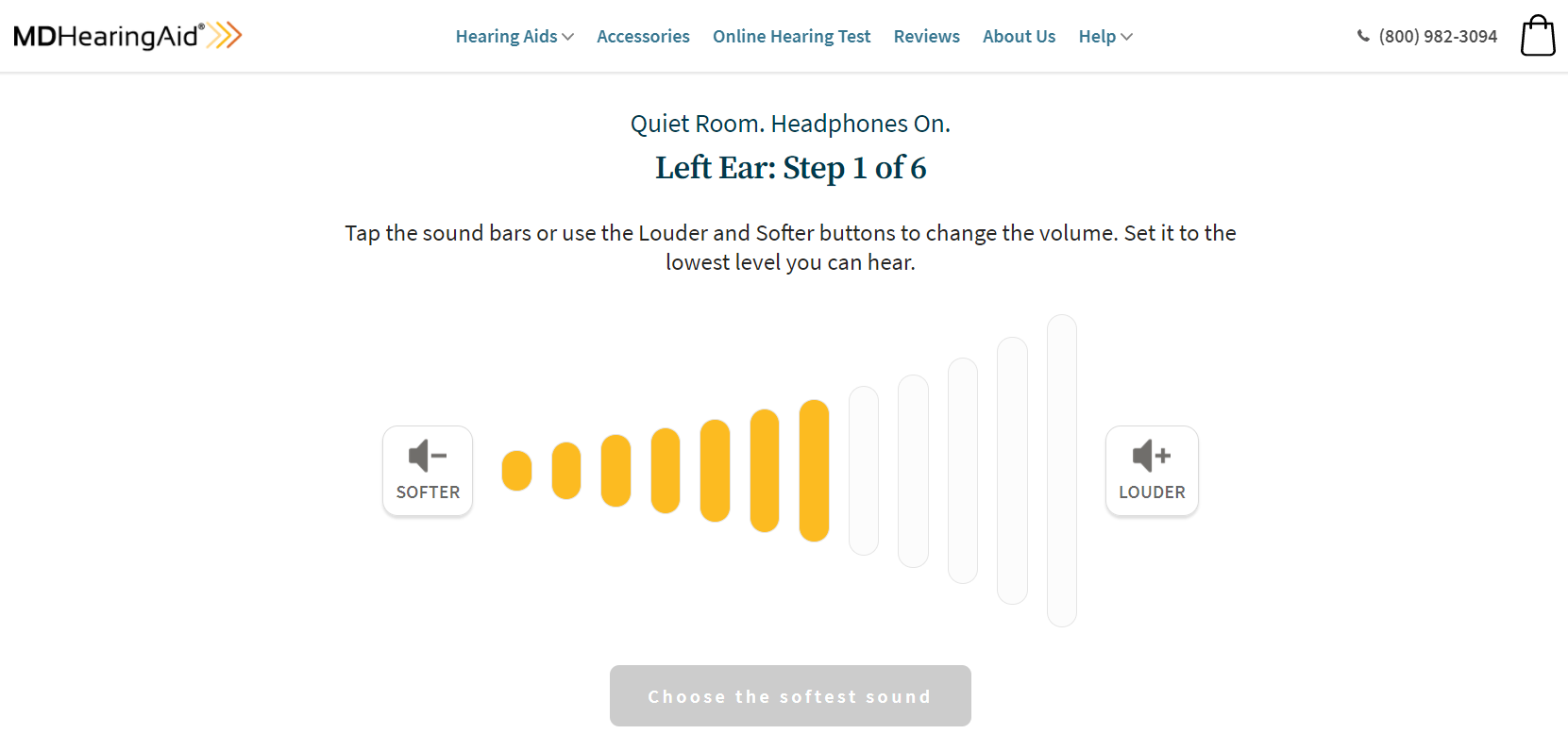
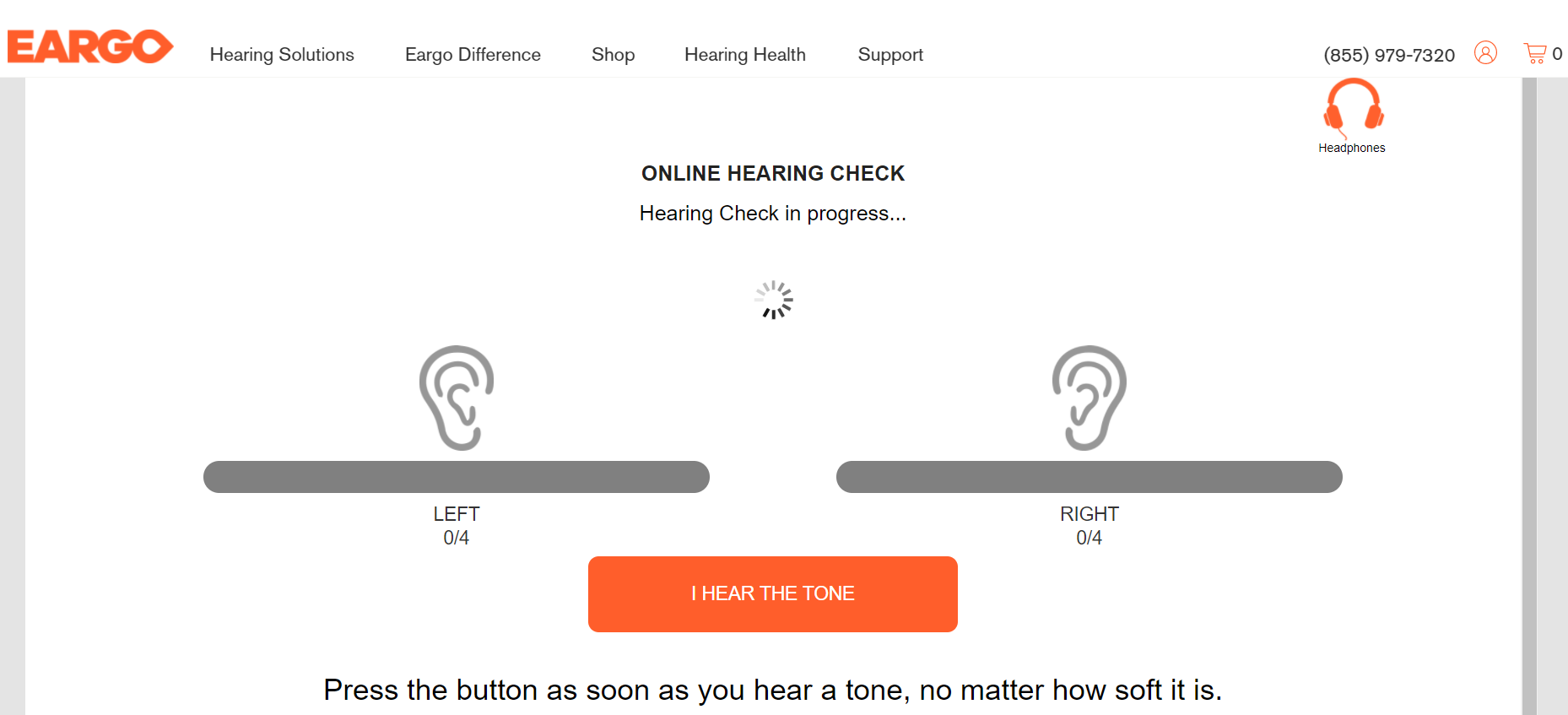

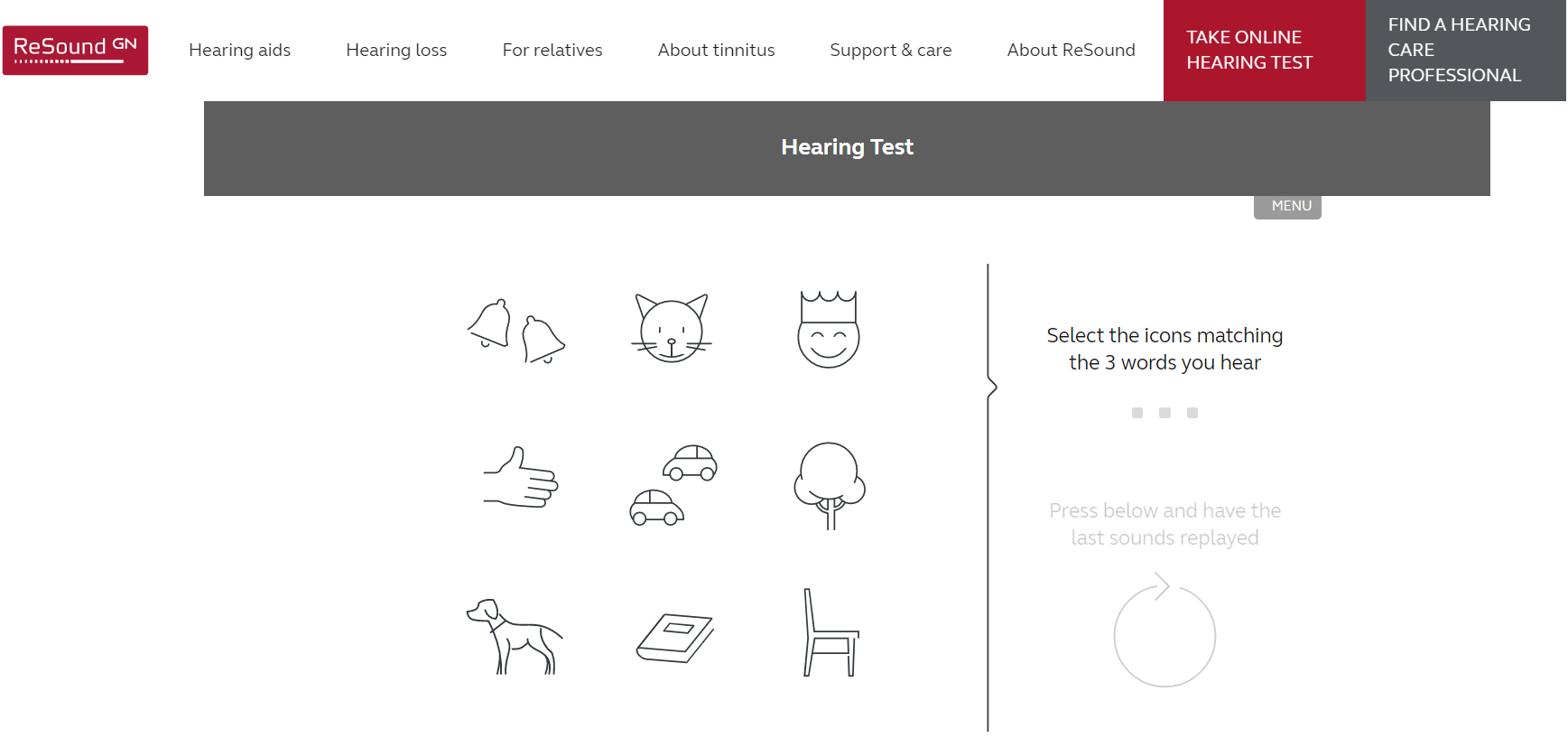
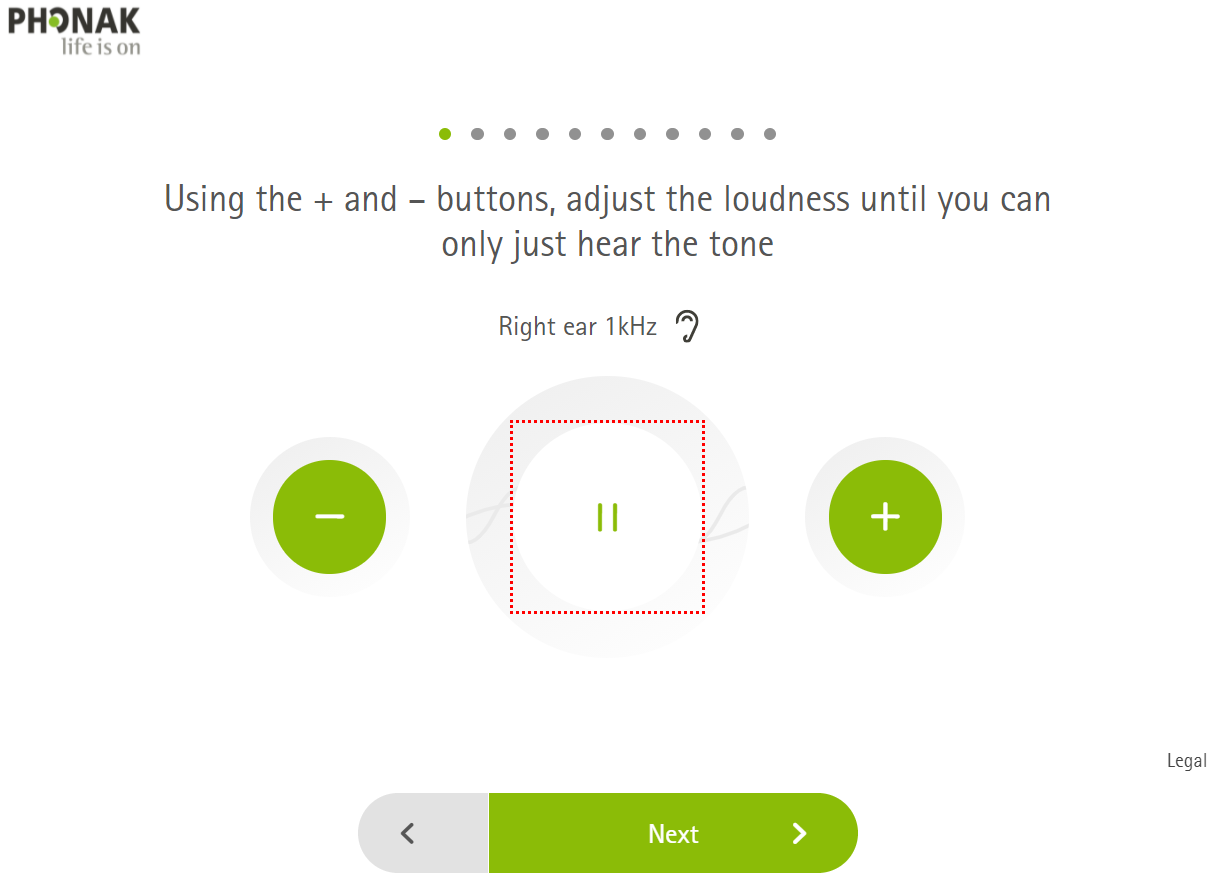
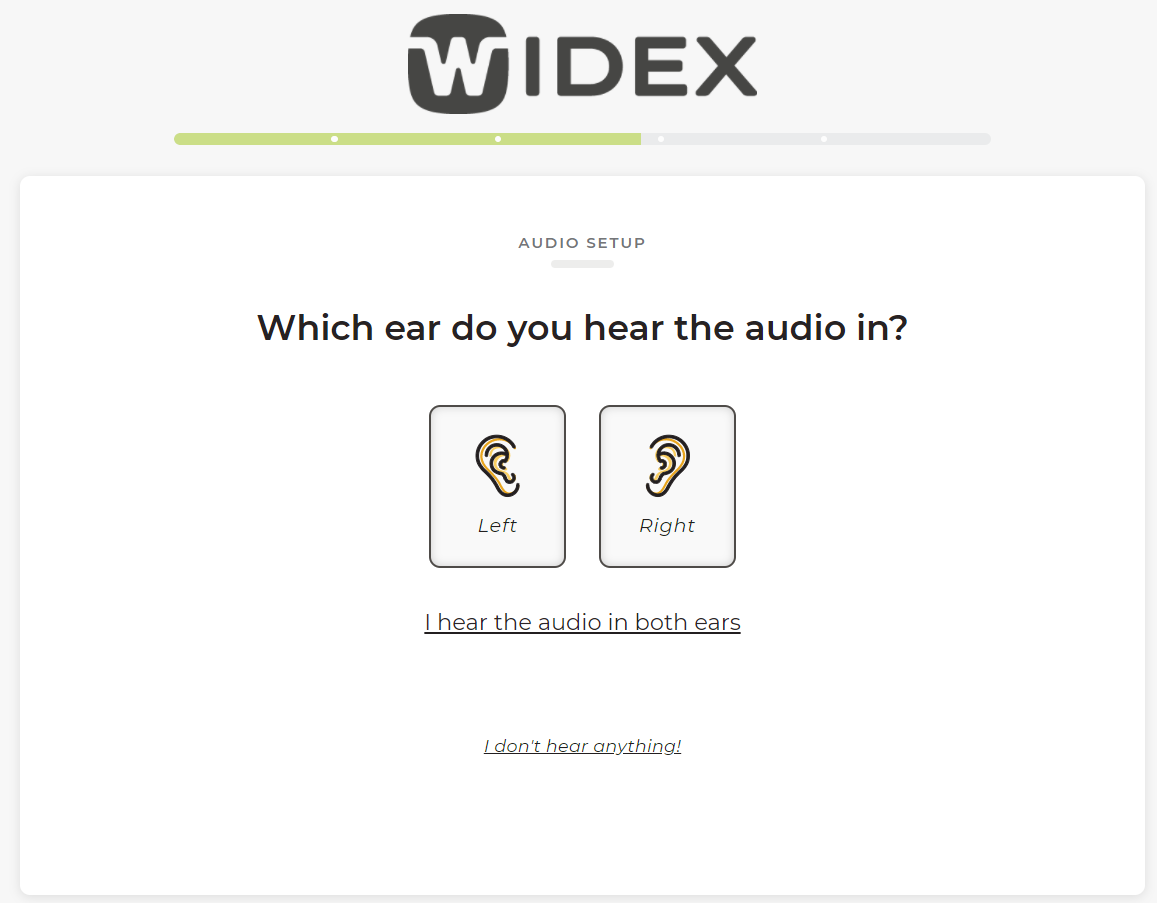
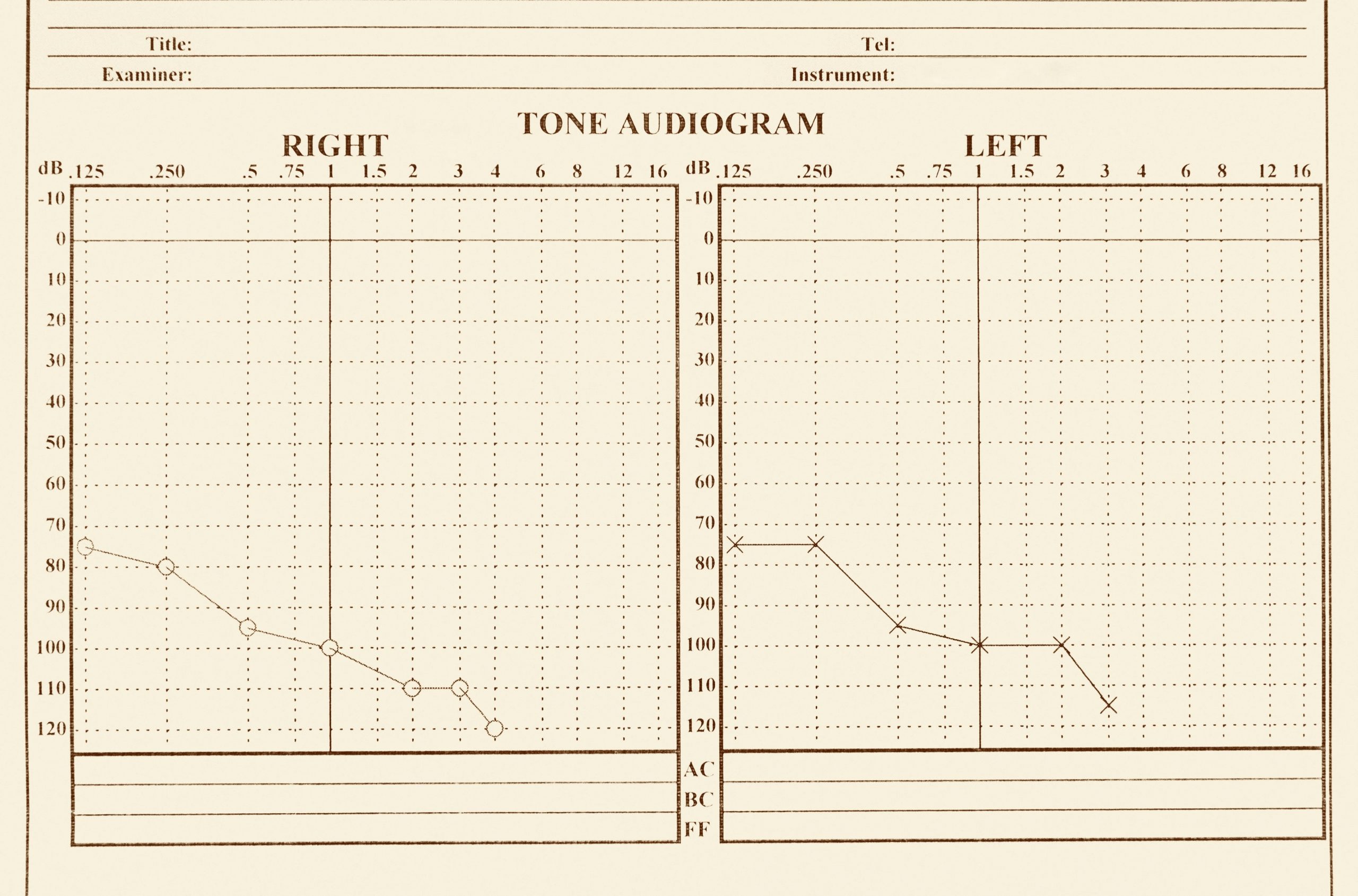
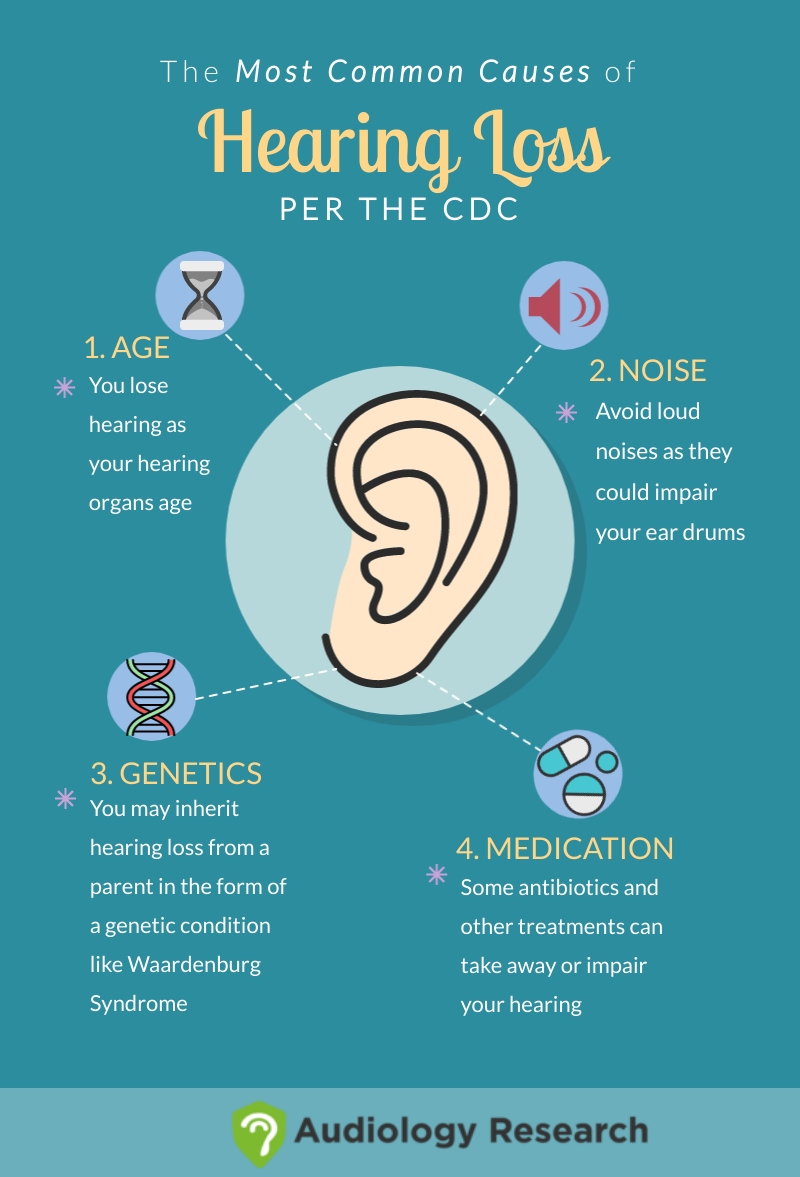
Leave a Reply